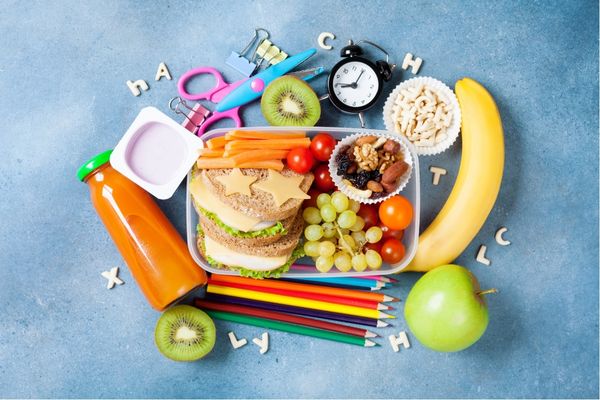The Advocate July 2023: Additional School Meal Funding has Expired
July 06, 2023
As we head into July, a key priority for the AASA Advocacy Team is urging Congress to extend the additional reimbursements for school meal programs provided by the Keep Kids Fed Act (KKFA), which expired on June 30.
In June 2022, Congress passed KKFA to support school meal programs as they continued to face significant challenges such as supply chain disruptions, unprecedented inflation and labor shortages. The bill was a direct result of months of persistent advocacy from national, state and local organizations. In addition to extending some of the COVID-19 waivers and necessary flexibilities for programs, the bill also provided critical additional reimbursements in recognition that districts would need increased financial support. During school year 2022-23, school meal programs received an additional $0.15 for each breakfast and $0.40 for each lunch.
These additional reimbursements were a lifeline for school districts over the past year and must continue. Although KKFA was passed to assist communities with recovering from the pandemic, many of the same economic challenges remain, including high inflation, supply chain disruptions, labor shortages and rising food insecurity. According to the Consumer Price Index (CPI) for May 2023, the cost of foods at elementary and secondary schools have increased 294% from 2022. Without the additional support, many districts and families will struggle to afford to feed students in such difficult economic circumstances. Districts will have no choice but to absorb the additional costs, which means limited education dollars that could go toward investments in student academic recovery and mental health services must be reallocated instead to support nutrition programs. District leaders can use this cost calculator from the School Nutrition Association to determine how much your district will lose if they are not extended.
In response to the expiration of KKFA reimbursements, USDA announced an additional $1.3 billion in supply chain assistance funds—which districts can use to purchase unprocessed or minimally processed foods for school meal programs. Funding will go from USDA to states, then states to districts based on enrollment. Additionally, in a few days USDA will adjust reimbursement rates for SY23-24 inflation. However, the inflation adjustment is based on the CPI for “food away from home”—not the CPI specifically for school foods, which means we are likely to only see about an 8% increase. While these actions will help districts cover the increased costs, it will not be enough. On June 23, AASA led a sign-on letter with 17 other national education, nutrition and child welfare organizations, urging Congress to extend the additional reimbursements for SY23-24.
On July 12, hundreds of education leaders joined us in Washington, D.C. for the AASA/ASBO Legislative Advocacy Conference where they will be able to meet with their respective members of Congress and express the importance of this financial support and ask them to extend it for another year. If you would like to advocate on this issue, the AASA Advocacy Team has made it easier for you. See how here.
School meal reimbursement rates have long been insufficient in covering the full cost of producing a reimbursable meal. As Congress prepares for a Child Nutrition Reauthorization there must be a broader conversation about long-term federal investments in school meal programs to ensure districts are able to sustain them. AASA looks forward to those conversations but until then, Congress must extend these additional reimbursements to help school districts in the immediate future so they can continue to provide kids with the meals they need to learn and grow.



